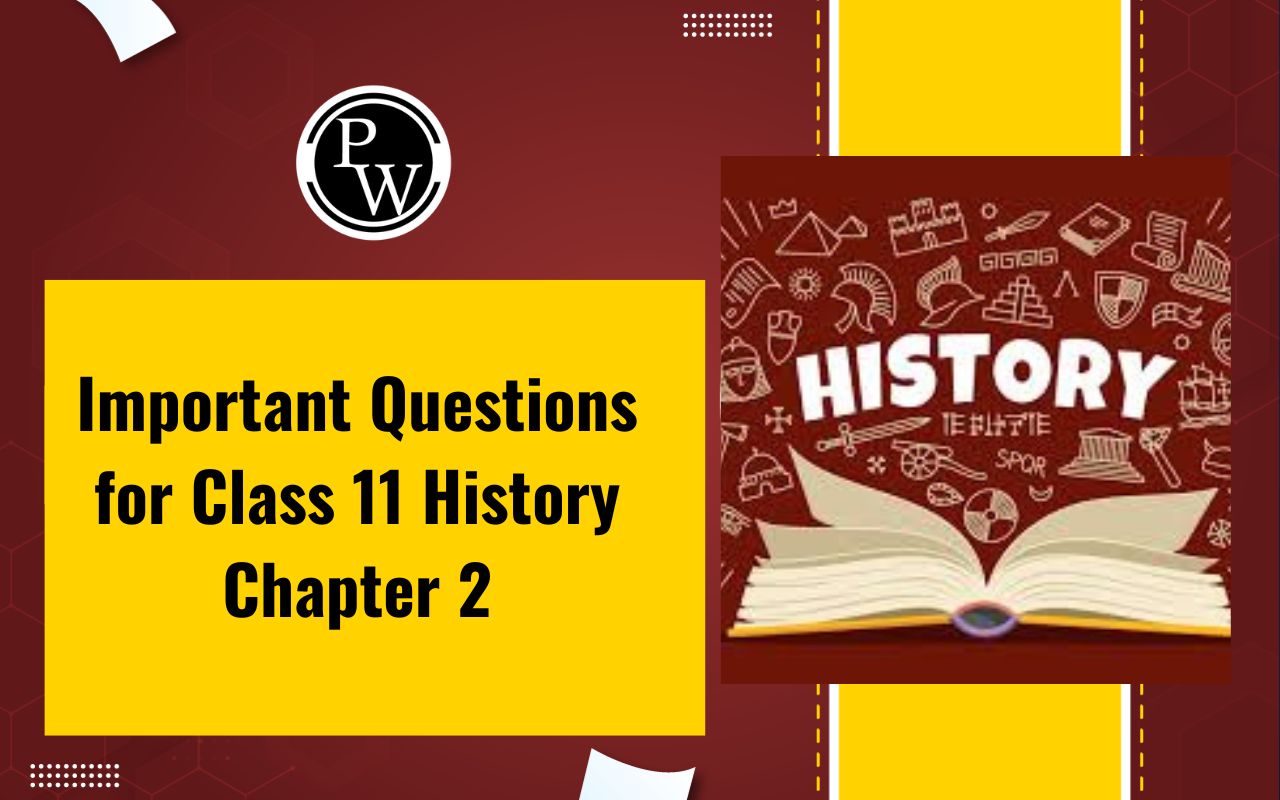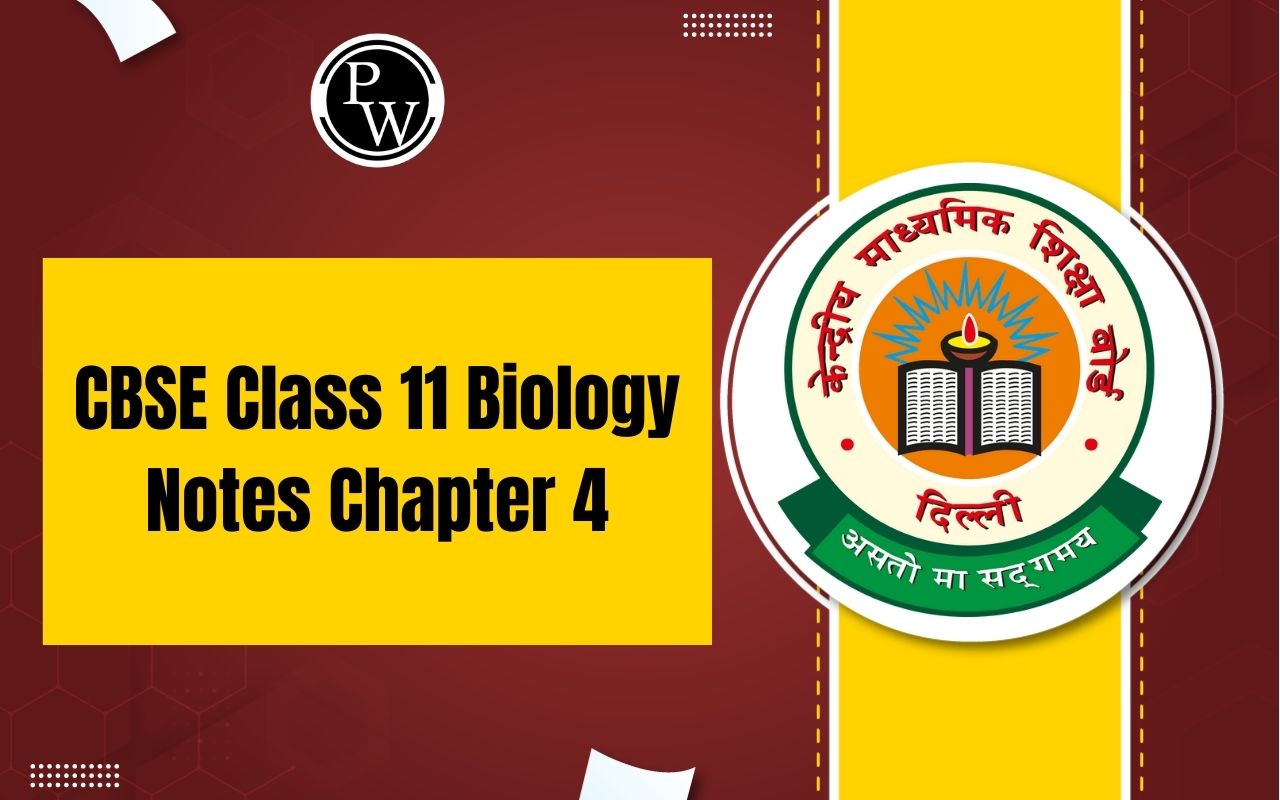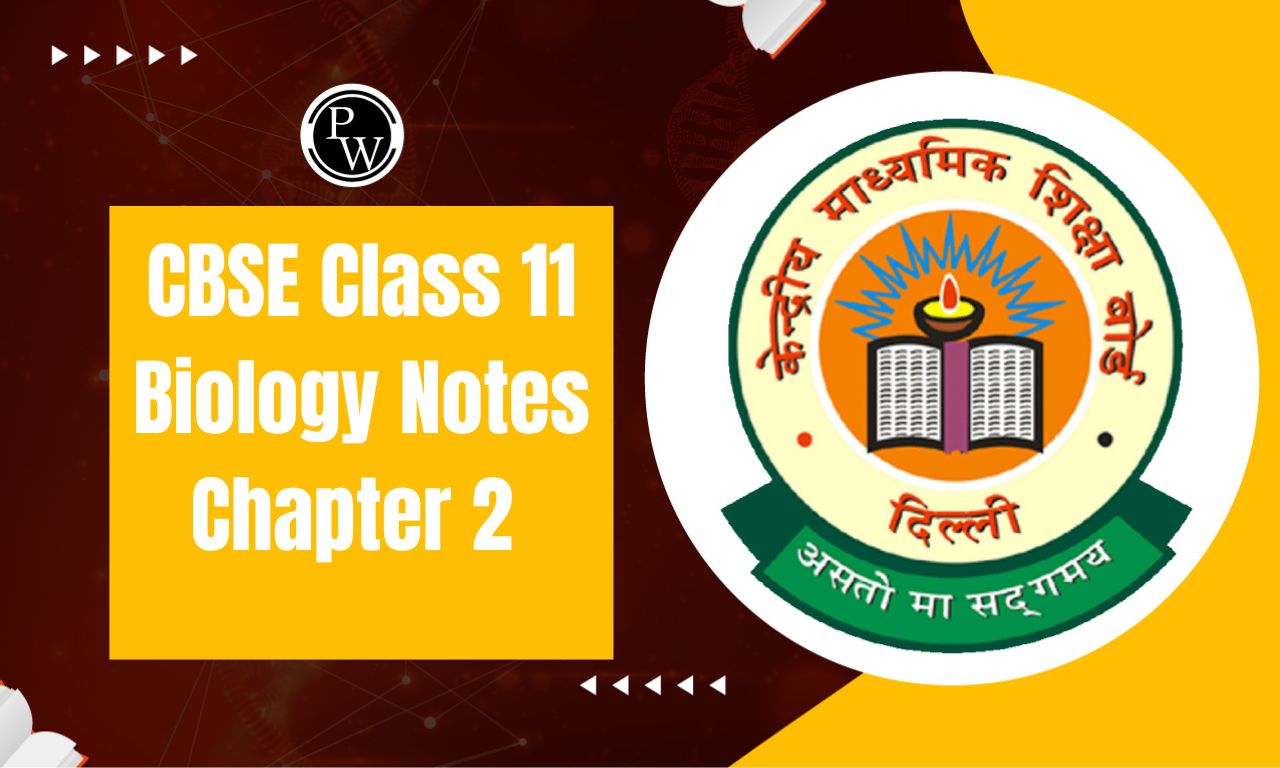

Important Questions for Class 11 History Chapter 2: Here are the important questions for Class 11 History Chapter 2 An Empire Across Three Continents which are beneficial for students preparing for exams.
These questions cover key aspects of the chapter including the rise and expansion of the Roman Empire, its political structures, military conquests, and cultural achievements. By focusing on these questions, students can enhance their understanding of the empire’s influence across Europe, Asia, and Africa, the impact of Roman governance and the factors leading to its eventual decline. These questions will help students in both revising the essential topics and in building a strong foundation for answering exam papers effectively.Important Questions for Class 11 History Chapter 2 Overview
Here are the important questions for Class 11 History Chapter 2 An Empire Across Three Continents are prepared by subject experts at Physics Wallah. These questions are created to help students thoroughly understand the key concepts of the chapter, such as the rise of the Roman Empire, its military and political structures, cultural contributions, and its vast influence across three continents. The expert-created questions focus on critical areas that frequently appear in exams, ensuring that students are well-prepared for both subjective and objective questions. By practicing these questions, students can improve their exam readiness and gain a deeper insight into the historical significance of the Roman Empire.Important Questions for Class 11 History Chapter 2 PDF
The PDF link for the Important Questions for Class 11 History Chapter 2 An Empire Across Three Continents is available below. By referring to this resource, students can systematically cover the essential topics, improving their preparation for exams. Accessing the PDF will provide a structured way to revise and practice important concepts, ensuring a well-rounded grasp of the subject matter.Important Questions for Class 11 History Chapter 2 PDF
Important Questions for Class 11 History Chapter 2 An Empire Across Three Continents
Here are the important questions which are beneficial for Class 11 students in exams for History Chapter 2 An Empire Across Three Continents. This chapter explains the rise and expansion of the Roman Empire, its governance, military conquests, and cultural integration. Some of the key questions to focus on include: Question 1. Who were the three writers mentioned in the text, and what did they describe about how the Romans controlled labor? Also, describe any two methods used by the Romans to control labor. Answer: The three writers mentioned are Tacitus, Columella, and Pliny the Elder. Tacitus discussed how the Roman slaves were treated harshly, sometimes even to the point of rebellion, such as when a slave murdered his master, leading to riots. Despite such violence, no laws were passed to reduce the severe punishment of slaves. Columella wrote about how slaves were organized into smaller groups for easier supervision. According to Pliny the Elder, slaves were often chained together by their feet to prevent them from escaping, saving on supervision costs. He also mentioned that workers were marked with seals and forced to wear distinctive headgear to easily identify them. These methods were aimed at controlling the labor force and preventing escapes, with severe consequences for disobedience. Question 2. What event led to the introduction of the term "Draconian"? Answer: The term "Draconian" originated from Draco, an ancient Greek legislator who introduced a series of laws around the 6th century BCE. One such law, introduced in 398 BCE, allowed workers to be branded to prevent them from escaping and to make identification easier. This was an extremely harsh and inhumane punishment. The severity of Draco's laws led to the term "Draconian" being used to describe any laws or measures that are excessively harsh. Question 3. What is Frankincense and where does it come from? Answer: Frankincense is a fragrant resin used in perfumes, obtained by making incisions in the bark of Boswellia trees. These trees are primarily found in the dry regions of the Arabian Peninsula, where the natural conditions support their growth. The resin has been used for centuries in religious rituals and as a luxury item in perfumes. Question 4. Describe the living standards of aristocrats during the Roman Empire. Answer: The aristocrats in the Roman Empire were wealthy and had lavish lifestyles. They lived in large estates with various luxurious amenities such as baths, fountains, and temples. These individuals often served in the Roman Senate and had substantial incomes, earning up to 4,000 pounds of gold per year, excluding the profits from agriculture. Some earned even more, depending on the value of their land and property. They were powerful figures, and their lives were marked by opulence and social privilege. Question 5. What is meant by "Late Antiquity," and why was this term used? Answer: "Late Antiquity" refers to the period between the 4th and 7th centuries CE, which is seen as a transition between the ancient and medieval periods. The term was coined to describe the changes that took place during this time, including shifts in political power, economic structures, and cultural practices. Key emperors like Diocletian and Constantine played significant roles in this era. Diocletian restructured the Roman Empire and divided power between different groups, while Constantine further reinforced these divisions and established a new capital at Byzantium, later named Constantinople. This period was marked by both political stability and economic challenges, as well as the spread of Christianity. Question 6. Who was Nero, and why is he famous? Answer: Nero was a Roman emperor infamous for his cruelty and tyranny. He is most known for his violent and extreme actions, especially his treatment of slaves and workers. Nero is remembered for leading a rebellion after a slave was executed for murdering his master, which led to widespread protests. He criticized the Senate for their harsh treatment of the lower classes, including slaves, and his actions against the oppressive regime made him a figure of historical significance. Question 7. Who were "Plebs Sordida," and how do they resemble modern film stars or sports figures? Answer: "Plebs Sordida" were the lower-class citizens in ancient Rome, often depicted as disheveled and addicted to entertainment such as theater and circus games. They were mostly slaves or poor people who lived to entertain the rich. In a way, they resemble modern-day celebrities like film stars or sports figures, who often entertain the masses and enjoy a similar level of public attention, even though they are sometimes seen as less important in societal terms. Like the Plebs Sordida, modern celebrities often influence public behavior and attitudes, but their status is often based on their ability to entertain rather than contribute to society in other ways. Question 8. What happened when debt-bondage weakened the labor force? Answer: Debt-bondage, where workers were forced to work to repay their debts, severely oppressed laborers in the Roman Empire. Over time, this system crushed their spirits, leading to rebellion, such as the Great Jewish Revolt of 66 CE. Workers who had been bound by debts destroyed the contracts of moneylenders in order to gain popular support. The harsh conditions under debt-bondage inspired resentment and resistance among the lower classes. Question 9. Who was the exception to labor coercion in the Roman Empire? Answer: Emperor Anastasius, who ruled during the late 5th century, was an exception to the harsh treatment of laborers. Unlike other rulers, he offered high wages to workers involved in building the frontier city of Dara. This city was constructed in less than three weeks, and workers were compensated well for their efforts. This policy contrasted with the widespread use of forced labor and harsh conditions elsewhere in the empire. Question 10. What were some less-advanced states under the Roman Empire? Answer: Under the Roman Empire, there were some less-advanced states, such as Numidia (modern Algeria), where pastoralism and semi-nomadic lifestyles were prevalent. People in these areas practiced transhumance, moving their livestock between higher and lower ground in search of pasture. These communities lived in portable, oven-shaped huts and had a simple lifestyle. Similarly, in Spain, Celtic-speaking peasant communities known as Costella were impacted by Roman expansion, which reduced their pastures and controlled their movements.Benefits of Solving Important Questions for Class 11 History Chapter 2
Solving important questions for Class 11 History Chapter 2 An Empire Across Three Continents provide several benefits that can significantly aid students in their academic journey: Better Understanding of the Subject : By practicing these questions, students get a clearer picture of how historical events unfolded, allowing them to better understand the complexities of the Roman Empire's expansion, governance and cultural influence. Increased Retention of Information : Regularly solving important questions helps students retain crucial facts and details about historical figures, events, and timelines. This repetition reinforces long-term memory and ensures that students can recall relevant information during exams. Improved Analytical and Critical Thinking Skills : These questions require students to analyze historical events and their causes and consequences. This process encourages critical thinking, helping students not only learn facts but also understand the broader context in which these events occurred. Effective Exam Preparation : Important questions are created to cover the most relevant topics from the chapter, making them an excellent resource for exam preparation. Practicing them gives students insight into the types of questions they may face in their exams, helping them feel more prepared and confident. Clarification of Doubts : Working through these questions can help identify areas where students may have doubts or confusion. By addressing these questions, students can clarify their understanding and avoid errors in the actual exam. Enhanced Writing and Presentation Skills : History exams often require students to write detailed and structured answers. Solving important questions allows students to practice writing coherent, well-structured responses, which improves their overall writing skills. Increased Conceptual Clarity : Repeated exposure to key concepts through these questions allows students to understand the connections between events, figures, and policies, leading to greater conceptual clarity. Boosting Confidence : As students master these important questions, they build confidence in their knowledge and abilities, reducing anxiety and exam stress. This confidence can lead to better performance during exams. Self-Assessment and Time Management : Solving important questions gives students a chance to assess their strengths and weaknesses. This self-evaluation helps them manage their study time more effectively, focusing on areas that need more attention. Enhanced Problem-Solving Abilities : Answering these questions challenges students to think critically about historical issues and solve problems based on the facts they have learned. This problem-solving skill is useful not just for exams but also for real-life situations where logical reasoning is required.Important Questions for Class 11 History Chapter 2 FAQs
What is the significance of the Roman Empire in world history?
The Roman Empire is one of the most influential empires in world history, known for its extensive territorial expansion, advancements in governance, military strategies, and cultural contributions. The empire's impact on law, architecture, language, and political systems continues to be felt today.
What were the main factors that contributed to the rise of the Roman Empire?
The rise of the Roman Empire can be attributed to a combination of factors such as effective military strategies, political stability, economic prosperity, and the integration of diverse cultures and regions.
How did the Roman Empire manage its vast territories across three continents?
The Roman Empire managed its vast territories through a combination of direct rule and local autonomy. The empire was divided into provinces, each governed by a Roman-appointed official.
Who were some of the key figures in the Roman Empire's expansion?
Key figures in the expansion of the Roman Empire include Julius Caesar, Augustus (the first Roman Emperor), Trajan, and Hadrian. These leaders played significant roles in military conquests, political reforms, and consolidating Roman power across Europe, Asia, and North Africa.
Talk to a counsellorHave doubts? Our support team will be happy to assist you!

Check out these Related Articles
Free Learning Resources
PW Books
Notes (Class 10-12)
PW Study Materials
Notes (Class 6-9)
Ncert Solutions
Govt Exams
Class 6th to 12th Online Courses
Govt Job Exams Courses
UPSC Coaching
Defence Exam Coaching
Gate Exam Coaching
Other Exams
Know about Physics Wallah
Physics Wallah is an Indian edtech platform that provides accessible & comprehensive learning experiences to students from Class 6th to postgraduate level. We also provide extensive NCERT solutions, sample paper, NEET, JEE Mains, BITSAT previous year papers & more such resources to students. Physics Wallah also caters to over 3.5 million registered students and over 78 lakh+ Youtube subscribers with 4.8 rating on its app.
We Stand Out because
We provide students with intensive courses with India’s qualified & experienced faculties & mentors. PW strives to make the learning experience comprehensive and accessible for students of all sections of society. We believe in empowering every single student who couldn't dream of a good career in engineering and medical field earlier.
Our Key Focus Areas
Physics Wallah's main focus is to make the learning experience as economical as possible for all students. With our affordable courses like Lakshya, Udaan and Arjuna and many others, we have been able to provide a platform for lakhs of aspirants. From providing Chemistry, Maths, Physics formula to giving e-books of eminent authors like RD Sharma, RS Aggarwal and Lakhmir Singh, PW focuses on every single student's need for preparation.
What Makes Us Different
Physics Wallah strives to develop a comprehensive pedagogical structure for students, where they get a state-of-the-art learning experience with study material and resources. Apart from catering students preparing for JEE Mains and NEET, PW also provides study material for each state board like Uttar Pradesh, Bihar, and others
Copyright © 2025 Physicswallah Limited All rights reserved.











